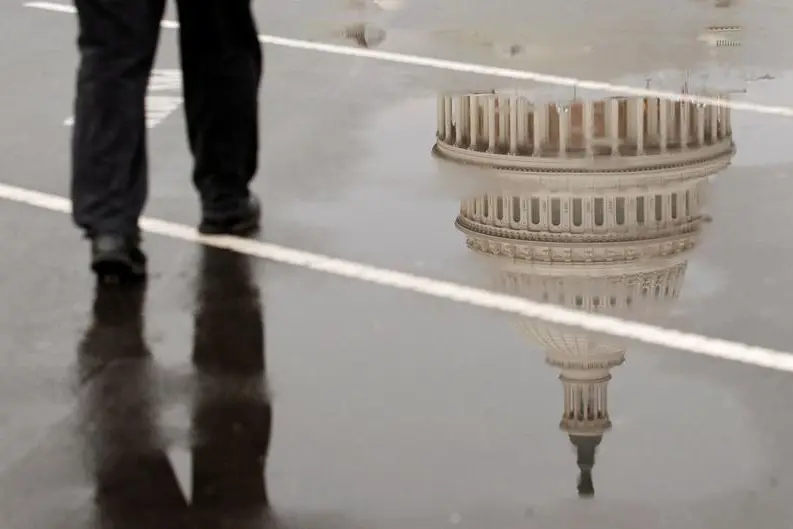PHOTO
WASHINGTON - President Joe Biden and top congressional Republican Speaker Kevin McCarthy will meet on Monday to discuss raising the federal government's debt ceiling, just 10 days before the United States could face an unprecedented default.
The Democratic president and the speaker of the Republican-controlled House of Representatives will meet after 4:30 p.m. ET (2030 GMT), sources said.
Any deal to raise the $31.4 trillion debt limit must pass both chambers of Congress before Biden could sign it into law. The U.S. Treasury has warned it could be unable to pay all its bills as soon as June 1.
Staff members from both sides reconvened at the Capitol ahead of the meeting, U.S. media reported, the morning after a two-and-a-half hour session and what McCarthy described as a "productive" call with Biden.
Biden also struck an upbeat tone about Sunday's conversation, telling reporters "It went well."
A failure to lift the debt ceiling would trigger a default that would shake financial markets and drive interest rates higher on everything from car payments to credit cards. Ongoing uncertainty is already weighing on investors and stocks.
U.S. markets opened flat on Monday morning as investors awaited updates on the negotiations.
McCarthy's Republicans control the House 222-213, while Biden's Democrats hold the Senate 51-49, making it difficult to reach a bipartisan deal that would secure enough votes to pass.
Republicans are pushing for discretionary spending cuts and defense spending increases among other demands in exchange for backing an increase in the government's self-imposed borrowing limit that would cover the costs of lawmakers' previously approved spending and tax cuts.
Democrats want to hold spending steady at this year's levels, while Republicans want to return to 2022 levels. A plan passed by the House last month would cut a wide swath of government spending by 8% next year.
Biden, who has made the economy a centerpiece of his domestic agenda and is seeking re-election, has said he would consider spending cuts alongside tax adjustments but that Republicans' latest offer was "unacceptable."
The president tweeted that he would not back "Big Oil" subsidies and "wealthy tax cheats" while putting healthcare and food assistance at risk for millions of Americans.
Both sides must also weigh any concessions with pressure from hardline factions within their own parties.
Some far-right House Freedom Caucus members have urged a halt to talks, demanding that the Senate adopt their House-passed legislation, which has been rejected by Democrats. Republican former President Donald Trump, who is seeking another term after losing to Biden in the 2020 election, has urged Republicans to force a default if they do not achieve all their goals, downplaying any economic consequences.
Liberal Democrats have pushed back against any cuts that would harm families and lower-income Americans, with some urging Biden to act on his own by invoking the Constitution's 14th Amendment — an untested move the president himself on Sunday said would face constraints.
The amendment states that the "validity of the public debt of the United States ... shall not be questioned," but the clause has been largely unaddressed by the courts.
Biden is racing for a solution after refusing for months to negotiate on the debt ceiling and insisting that Republicans should pass a "clean" unconditional increase before he would agree to any spending negotiations.
In Japan on Sunday, he acknowledged the political implications, saying some far-right House Republicans "know the damage that it would do to the economy" if there was a default but hoped the blame would fall to him and thwart his reelection.
Republican negotiator Representative Garret Graves, asked about spending limits versus other conservative priorities, told reporters Sunday: "A red line is spending less money. And unless and until we're there, the rest of it is really irrelevant."
(Reporting by Richard Cowan and Nandita Bose, additional reporting by David Morgan and Andrea Shalal; Writing by Susan Heavey; Editing by Scott Malone, Lisa Shumaker, Stephen Coates and Nick Zieminski)





















